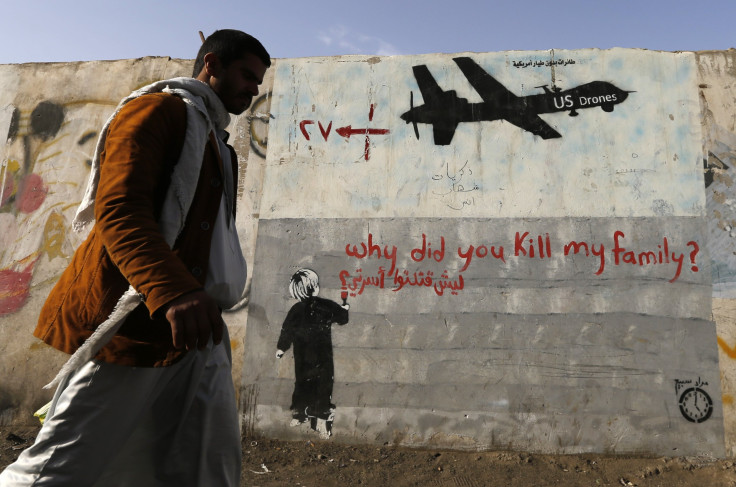Apple Strips US Drone Strike Tracker From App Store For Violating 'Objectionable' Content Rule

Apple's app store will no longer allow users to download a program that tracked the location and the number of deaths caused by U.S. drone strikes throughout the Middle East. The app, known as Metadata+, used texts and maps to document where drone strikes occurred. It was removed for violating Apple's rule against “excessively crude or objectionable content,” its developer said.
Josh Begley, a data artist and researcher for the news site the Intercept, put the app online in early 2014, using push notifications and information from the Bureau of Investigative Journalism to alert users when someone in Pakistan, Yemen, Somalia or elsewhere was killed in a U.S. drone attack. The app was rejected five times under the name Drone+, the Guardian reported Wednesday, before Apple ultimately accepted it as Metadata+. Begley told reporters that when it was removed, Apple said the app "contains content that many users would find objectionable.”
Apple has been repeatedly criticized for its mixed enforcement of app rules in the app store. It has taken down games about sweatshops, child labor, the civil war in Syria and many others, though its company policy makes it clear Apple doesn't consider these blacklists as a form of censorship.
“We view Apps differently than books or songs, which we do not curate,” the App store rules state. “If you want to criticize a religion, write a book. If you want to describe sex, write a book or song or create a medical App.”
The policy apparently doesn't cover a variety of apps, including “Crappy Rud,” “Rack Stare,” and a multitude of apps that track area farts.
The company has also shown a willingness to reinstate apps it previously declared objectionable. This was on display when Apple rescinded a ban on many of the apps featuring the Confederate flag removed in the wake of the racially motivated shooting in Charleston, South Carolina.
© Copyright IBTimes 2025. All rights reserved.



















